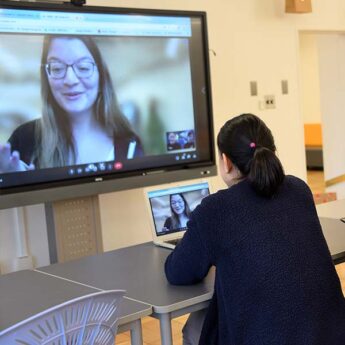Nurturing and retaining the best talent has always been a significant challenge for organisations. But how has a slowing global economy affected matters?
Has muted global growth made it easier for employers to find and attract talent? Or has the need for cost containment made it harder to reward top performers? How will talent needs change over the next decade and what should be done now to ensure those needs are fulfilled?
To answer these questions, and others, EF Education First commissioned a survey across 12 territories worldwide during April 2016. It shows that the tough economic situation is expected to continue for the next five to 10 years due to reduced consumer spend, increased global competition, currency volatility and general global uncertainty. This means budgets across the board are tight, organisations are trying to do more with less, while worker fatigue, stress and turnover are on the increase.
This is a tough situation for human resources departments to manage, which is why we call it the Talent Crunch. But it is not all doom and gloom. Our research highlights four areas on which organisations need to focus.
- Engagement and motivation, to both decrease turnover and increase employee effectiveness and impact, especially in such turbulent times.
- Leadership, to keep employees focused and upbeat, especially during significant corporate change programs (such as corporate mergers).
- Creativity, to foster greater innovation as a competitive advantage and as a revenue growth driver.
- Flexibility, to keep the most critical talent engaged and deliver the greatest business impact.
Communication skills play an important role in each of these areas. In Japan, ever more organisations are realising that, in order to adapt to increasingly turbulent business conditions, their existing talents need a greater ability to collaborate across borders or with non-Japanese counterparts, typically in English.
Whereas once many successful businesses had a structure in which a few people—fluent in English and perhaps with overseas experience—would handle all overseas communications, these resources no longer suffice. Communication now must be organisation-wide and continuous.
A shift has occurred, and communication is now increasingly about being able to plug in to a global dialogue. If you or your staff don’t have the appropriate English skills, you may find yourselves severely limited —however good you or they may be in a Japanese context—and that is a cost that organisations are increasingly less able to afford.
That said, the learning process to attain these skills should only take so long. You and your staff should then be able to complete your studies and continue with your day job now able to communicate in English and to build productive relationships with people overseas.
The benefits for an individual are considerable: a change in mindset, leading to improved mental agility and flexibility, wider access to useful information and the sharing of ideas faster and with less friction. This will save time at the individual level and, when multiplied, the wider network benefits for the organisation will be huge in terms of both cost efficiency and opportunity gains. In the end, it is often easier to teach an experienced engineer, service expert or senior manager to speak English, than to teach an English speaker those specialised occupational skills.
For many organisations, in which the workday involves communicating with parties overseas or with non-Japanese colleagues in Japan, a good deal of the stress that Japanese professionals experience is related to the use of English. Many capable people are keenly aware that insufficient English ability places them at a disadvantage.
It takes the right support and focus for people to see English as a tool that is personally useful and directly relevant to their job performance. Help people realise this and you already will have gone a long way towards enabling talented staff to achieve even more.
About Education First
We are the largest privately held education company in the world, with more than 50 years of experience providing language training and other educational programs to both young people and adults.
Over the course of our history, we have developed methods that promote effective and lasting learning in a variety of settings, both online and offline.
EF understands not only how to educate learners of English, but also how to train their English teachers—and how to measure both learners and teachers for proficiency.
We are ready to assist any organisation that wishes to build a foundation for future-ready business, innovation and economic growth.
In Japan since 1973, EF Education First Japan is very proud to be the official language services partner to the Tokyo 2020 Olympic and Paralympic Games and a new member of the British Chamber of Commerce in Japan.
For the full report please visit:
http://page.ef.com/talent-crunch-jp.html






